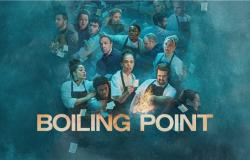Education is a process of basic communication of common values, which prepares girls and boys for a responsible life in a free, plural and diverse society where, regardless of their different cultures, beliefs and political ideologies, it is possible to communicate with each other. To achieve this goal, the State has the obligation to teach certain minimum contents, established in Article 14 of the Political Constitution.
One of these minimum contents, which must be taught compulsorily and throughout the educational process, is ethical and civic training, as well as the teaching of the Constitution and human rights; among them, the right to equality and non-discrimination, recognized in article 2 of the Constitution. The Convention on the Rights of the Child, in its article 29, specifies that boys and girls must be instilled in respect for human rights and fundamental freedoms; Likewise, they must be prepared to assume a responsible life in a free society, with a spirit of understanding, peace, tolerance, equality of the sexes and friendship between all peoples, ethnic, national, religious groups and people of indigenous origin.
However, the Minister of Education, Morgan Quero, is trying to remove twenty-two books from circulation due to the content of words that his administration considers sensitive to the educational process, such as “gender”, “armed conflict”, “abortion”, “social conflict”. and “comprehensive sexual education.” This ministerial decision is not far from that presented by the Holy Inquisition with its Index Librorum Prohibitorum et Derogatorum, which prohibited the reading, possession, printing and dissemination of the books listed there, or the burning of books in public bonfires orchestrated by the hordes. of the Nazi regime. In all cases, the intention is to control public life and morality, according to the public official, perverted at that time by “cultural Bolshevism.”
What happens when the Education sector itself promotes the censorship of texts considered “hostile literature”? Schools are no longer privileged spaces for the formation of independent critical thinking, opinion and self-expression to which each and every student has the right after absorbing information from different sources. In this way, schools move away from the mandate of developing and promoting attitudes linked to fundamental values for democratic coexistence. When reading lists are made or some books are removed from the library, it is not just the suppression of some titles, but, rather, the censorship of diverse ideas and perspectives that represent opportunities for critical discussions about complex social issues guided by the teacher in the classroom.
By banning these books, schools are limiting students’ access to different perspectives, thereby restricting intellectual growth. By controlling and directing the readings, the notions and premises become truth because they are forced to believe in them and not because they express the synthesis of various facts that can be debated and refuted.
All of these actions, which often have the appearance of maintaining social order or protecting honor—as occurred in Chile with the censorship of the screening of the film The Last Temptation of Christ, which was based on the alleged reputational damage of Jesus Christ and other effects on public morality—are actually threats to the very foundations of intellectual freedom, the circulation of thoughts and information, and democracy itself, because ideas are no longer judged on their merits, but subject to the whims of those who They hold the power of the day.
Although the decision has not yet been made, the intention exists and the minister says that it is part of his commitment to the frontal fight against terrorism and financial education for inclusion. However, this is not a single isolated initiative, but rather responds to a set of measures underway.
Law No. 31745, which declares of national interest the introduction of curricular study content on civic education and the history of subversion and terrorism in Peru in the country’s educational institutions, or the vandalistic intention of the mayor of Lima to demolish the memorial. Ojo que Llora to develop sports and recreational areas, are just some examples.
Likewise, the district peers of the mayor of Lima do the same, deleting murals and closing parks. In Congress he attacks Peruvian cinema, especially expressions of regional cinema.
In practice, it seeks to feed the narrative that serious human rights violations were committed exclusively by subversive groups taking up arms and omit the participation of the armed and police forces today on the verge of being freed from their criminal responsibility, thanks to the law that declares the statute of limitations for crimes against human rights committed until July 2002.
If this ministerial attack against freedom of thought and the circulation of ideas occurs, in the coming years we would have legions of consumers lacking citizenship. Very dangerous practice for a democracy that is no longer a democracy and a country that demands justice for its dead and missing. We are missing 50 and we are still looking for our more than 21,000 missing people.
*Jennie Dador is Executive Secretary of the National Human Rights Coordinator






